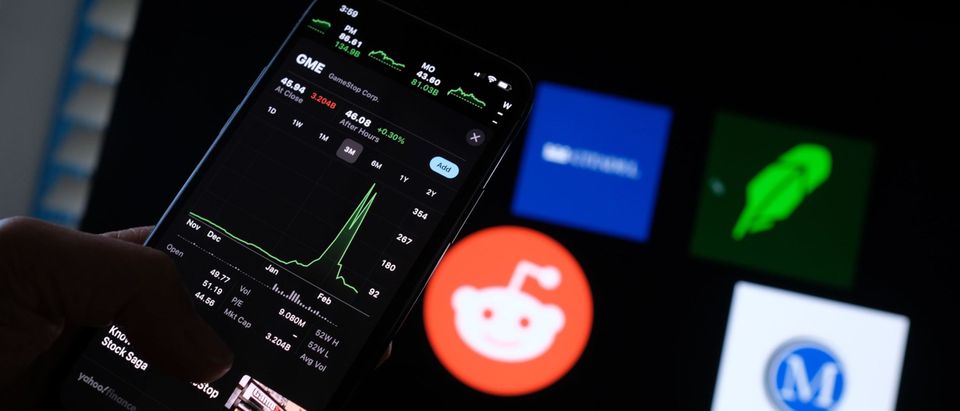A recent white paper from PiiQ Media says that bots on several social media sites were building coordinated hype around so-called “meme stocks” like GameStop, Reuters reports.
PiiQ Media found that tens of thousands of bots on Twitter, Facebook, Instagram, and YouTube have been pushing meme assets, according to a report provided to the Daily Caller by the Massachusetts-based cybersecurity firm. However, the assessment was inconclusive on how influential the bots actually were in the trading phenomenon that captured media headlines and American’s attention in late January to early February, the report said.
GameStop stock just jumped 100 percent, and WallStreetBets is ecstatic https://t.co/qHMHZ8lPGg pic.twitter.com/hCDewolUZs
— The Verge (@verge) February 24, 2021
“Recent congressional testimony around this issue stated that there was no evidence this activity was artificial or being centrally controlled, but that it was organic conversations engaged in by real people. PiiQ Media conducted research across the major social media platforms to identify the true nature of the conversations and came to the opposite conclusion,” the report provided by PiiQ Media to the Caller said. (RELATED: How A Rabble Of Anonymous Redditors Stuck A Thumb In Wall Street’s Eye)
The firm traced the use of phrases and keywords across the social media platforms, such as “Hold the Line” and “GME” (GameStop’s stock symbol) prior to and throughout the speculation sensation. What they found was posts regarding GameStop, and other stocks including “Nokia, Blackberry, Nakd and AMC,” followed a fairly similar pattern in individual days during the frenzy.
PiiQ “found very specific start and stop patterns with a distinctive curve starting at the beginning of the trading day followed by a large spike at the end of the trading day consisting of a completely different set of keywords than in the earlier part of the day,” the report claimed.
To compare the activity, PiiQ also analyzed posts on other stocks, and found “a more normal distribution and true organic posting patterns,” the report said.
“We saw clear patterns of artificial behavior across the other four social media platforms. When you think of organic content, it’s variable in the day, variable day-to-day. It doesn’t have the exact same pattern every day for a month,” PiiQ Co-Founder and Chief Technology Officer Aaron Barr told Reuters.
The startup was able to reach their estimation through its “authenticity scoring system.” PiiQ Media added that bot accounts on Twitter are pretty cheap. “In the current market, 10,000 Twitter followers can be purchased for as little as $200,” the report asserted.
“Bot influence campaigns link bot accounts to additional bot accounts in order to reinforce the message they are driving,” the report claimed. The report also claimed that bots “retweet messages from prominent individuals who are perceived as “trusted people” within the conversation. This has a knock-on effect of adding “real people” to the bots’ followers list, giving it more credibility within the event.”
PiiQ Media says their research “shows that events may begin as something truly authentic but can be either positively or adversely affected by influence campaigns via social media.”
“It’s unclear how successful in real life terms these campaigns are, but the fact that large bot campaigns are being constantly deployed within social media is a concern,” the report concluded.


